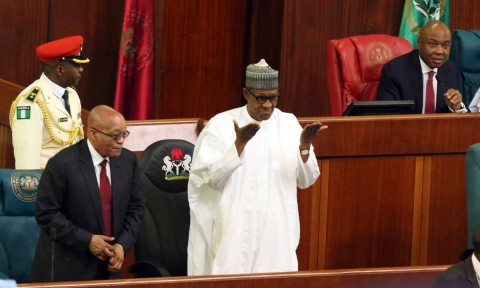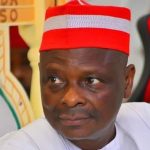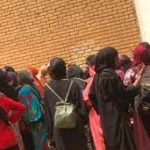When Zuma Came Visiting, By Owei Lakemfa
Featured Contributors/Columnists, Latest Headlines Tuesday, March 15th, 2016
BALTIMORE, MD (AFRICAN EXAMINER) – Jacob Gedleyihlekisa Zuma, President of South Africa came visiting Nigeria this week, bearing messages of hope and African renaissance. The Zuma story is one that teaches Nigeria how to handle its citizens and the fact that human beings if given the opportunity, can excel. Zuma was five when his father died, and his poor mother, a domestic worker found it difficult to feed him. He did not go to school, and by fifteen was working; he was essentially a herd boy in the mountains of Nkandla, South Africa where he looked after the cattle and livestock of families in the area.
Zuma, perhaps to kill boredom in the bush, learnt how to read and write Zulu. He joined the anti-Apartheid struggle in 1959, was arrested and sent to Robben Island for ten years where he met the South African greats like Nelson Mandela. The African National Congress (ANC) in planning for a future South Africa, encouraged people like Zuma to learn how to read and write in prison. When he went into exile after his release, the ANC, in planning for a future South Africa, sent Zuma and several other cadres for studies. Zuma, the herd boy with had no Western education, was so schooled and exposed that he became the ANC Chief of Intelligence, and after Apartheid, the country’s Vice President, and from May 6, 2009, its president. The Zulu boy became proficient in Swahili and Xhosa, as well as in English, French, Portuguese and Russian.
The Zuma story teaches Nigerians that the herd boy we see roaming our villages and towns, the farm boy trying to eke a living or the street child, do not need to be sentenced to a life of misery, poverty or illiteracy more so in an increasingly globalized world.
Of course the charismatic Zuma who publicly, sings and dances, is not my role model of an African leader. His freewheeling with women which has seen him marry six times, having twenty children, facing a false rape case, and his misuse of public funds to upgrade his private house tend to overshadow his patriotism, brilliance, strong Pan Africanism and sense of social justice.
South Africa and Nigeria are two power houses in Africa and the normal sibling rivalry, is not far from the surface. But the issue of insurgency in Nigeria and South Africa’s role has been a major issue which not surprisingly, cast a long shadow on the visit. In 2014, Nigeria was under the heat of the Boko Haram insurgency and it urgently needed arms to check the terrorists who were laying towns and cities waste and carrying out horrendous massacres.
The Americans had decided to place an arms embargo on the country, and had gotten its allies to refuse selling arms to Nigeria. Attempts to get arms from independent sources were also being frustrated with countries like Saudi Arabia denying the use of its airspace to aircraft carrying arms to the Nigerian government. In desperation, Nigeria turned to private arms suppliers in South Africa, but the authorities of that country in September 2014, seized the cash for the purchase at the airport in Johannesburg. A second attempt to transfer funds to the suppliers through the banks was also frustrated as the money was also seized. The Nigerian Presidency appealed directly to Zuma for help, but his office said the South African Presidency does not interfere in matters handled by the country’s institutions. So until today, the Nigerian funds remain seized in South Africa.
Then came the issue of the overbearing South African communications company, MTN which blatantly refused to disconnect 1.5 million unregistered lines. The company was fined N1.04 Trillion, but the Nigerian Presidency intervened and the fine was reduced to N780 Billion. However, the ungrateful MTN, behaving like a spoilt brat, refused to pay the reduced fine. Rather, it took Nigeria to court. While the South African Presidency had refused to intervene in the seized arms fund, the Nigerian Presidency had shown good faith by intervening in the MTN case, and it had been repaid with disdain.
During his visit on Tuesday, Nigerian President Mohammed Buhari told Zuma “The concern of the Federal Government was basically on the security and not the fine imposed on MTN… Boko Haram has killed over 10,000 Nigerians since 2009 and the use of unregistered SIM cards aided them.” The Nigerian Presidency still says it is willing to assist MTN on the issue while Zuma promises to return the seized Nigerian money.
There are of course other South African companies in Nigeria like the DSTV which disobeys court orders and threats Nigerian consumers with disdain, and Shoprite which has a history of disobeying Nigerian labour and financial laws.
As a Nigerian, I was humbled that South Africa could proudly announce that its companies in Nigeria had increased from four in 1999 to 120 by 2016 while Nigeria could not tell a similar story; Nigeria’s investment in South Africa appears to be primarily churches.
Zuma announced that visa acquisition by Nigerians will be made easier. That is not my primary concern, what is primary is the safety of Nigerians who have on a number of occasions, along with other Africans, been victims of bloodyAFROPHOBIC attacks. Zuma had responded to the issue saying all Africans are brothers. But his assurances were not firm. No compensation is known to have been paid and there is no certainty, there will be no further attacks.
Zuma acknowledged the role of Nigeria in the anti-Apartheid struggle and made quite progressive remarks on the need to advance continental integration and diversify our economies as a solution to mass unemployment.
South Africa has energy problems, so I don’t know how much stock we can put on Zuma’s offer to help. Also, in the face of the rebel Seleka advance in the Central Africa Republic on March 23, 2013, South African forces on the ground virtually collapsed, so I am not sure how much we can rely on that country’s military offer to help conquer Boko Haram.
Beyond the visit, the hope is that unlike in the past, Understanding and agreements reached, will be implemented.
Related Posts
Short URL: https://www.africanexaminer.com/?p=30944






















